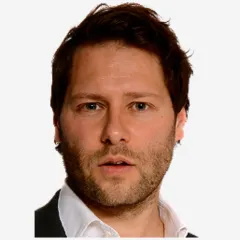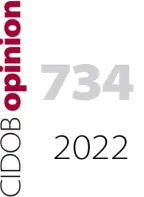Matteo Garavoglia

Investigador sénior asociado
El Dr. Matteo Garavoglia es investigador asociado en el Departamento de Política y Relaciones Internacionales de la Universidad de Oxford, investigador sénior asociado en CIDOB (Centre d’Informació i Documentació Internacionals a Barcelona), profesor adjunto en la Hertie School of Governance de Berlín e investigador senior y Director en el European Movement International en Bruselas. Dirige el proyecto Esfera Pública Europea: un esfuerzo de investigación que involucra a los principales actores de las empresas, los medios de comunicación y de la política para desarrollar propuestas orientadas a políticas específicas destinadas a europeizar las esferas públicas nacionales.
Anteriormente, fue miembro del programa Italia en el Centro de Brookings Institution en los Estados Unidos y Europa en Washington DC. También fue profesor adjunto en la Escuela Paul H. Nitze de Estudios Internacionales Avanzados de la Universidad Johns Hopkins, profesor invitado en la Universidad Bocconi de Milán e investigador en el Centre d'Etudes Européennes de Sciences Po en París y asistente de investigación en la London School of Economics and Political Science. El Dr. Garavoglia ha sido conferenciante entre otras en la Universidad de Harvard, la Universidad de Princeton, la Universidad de Columbia y la Universidad de Georgetown. Su trabajo ha sido publicado o citado por, entre otros, Edmund A. Walsh School of Foreign Service, National Interest, the Atlantic, Voice of America, ABC News, NBC News, National Public Radio, China Global Television Network, Bloomberg, Fortune , The Washington Post, Al Jazeera, Politico, Deutsche Welle, CNN, Foreign Policy and Foreign Affairs. Estudió en la Universidad de Londres (BA), en el Centre d'études européennes de Sciences Po Paris (MA) y en la Freie Universität Berlin (PhD). El Dr. Garavoglia vivió en doce países diferentes en cuatro continentes, habla italiano, inglés, español, francés y algo de alemán.
